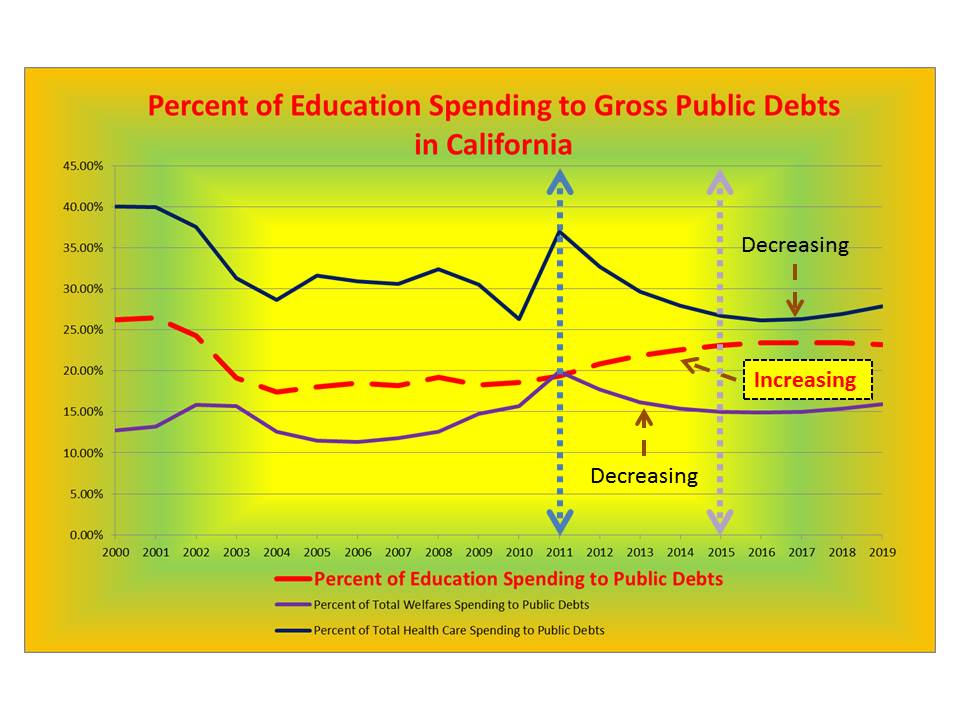This morning we read an opinion article “if Californians have to support the Governor’s or the UC President’s idea on the future higher education in the state”. Yes, we agree that finally UC gets budget attention for the good of the students. Without data, anybody can make his own theories and suggestions. AAEA has compiled and completed research many weeks ago and we are sure this research finding will be shared at the right time. It is then the perfect time to share it to the American public.
The chart below shows pretty clear that public spending on education has been pretty stable until 2011. After that year, the spending has increased quite significantly and it is projected that it will keep going up a couple years before it levels off. As the pool of (tax) money will always finite, increasing spending on public education in the state has largely supported by taking away from other posts. In this example, we just showed it may have come from health care and welfare. During the same period of time, these last two posts have significantly decreased while spending in public education has moved toward the other direction.

